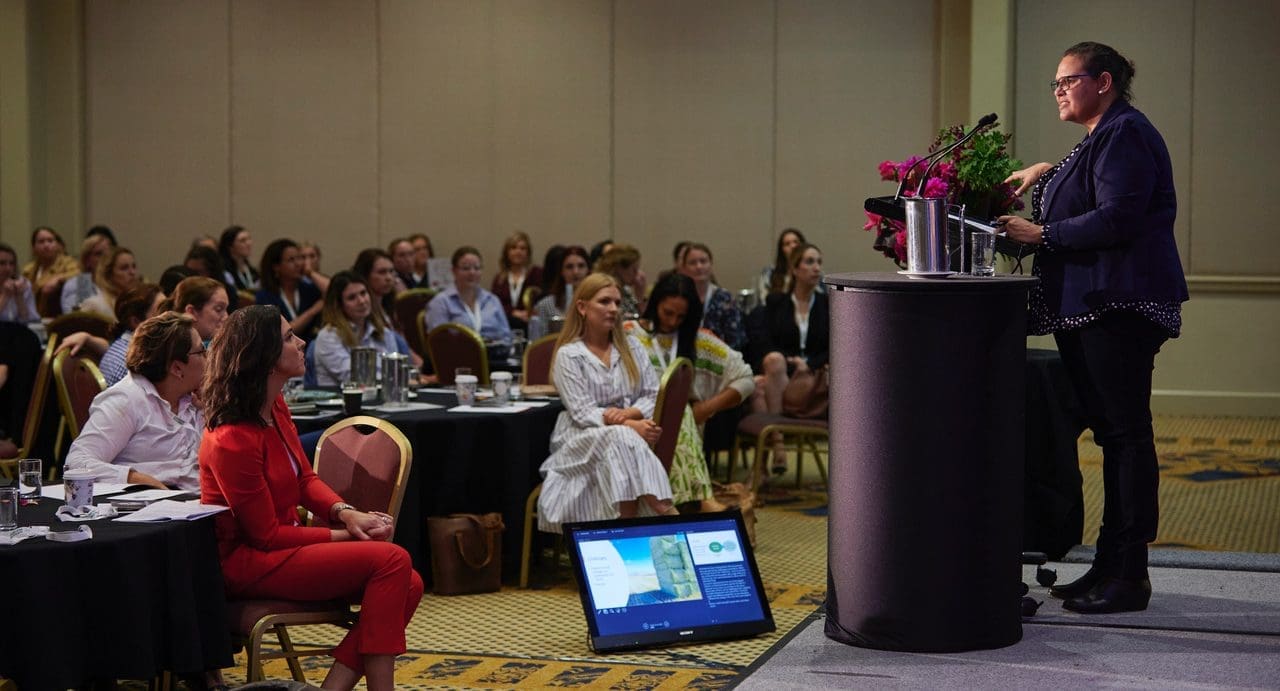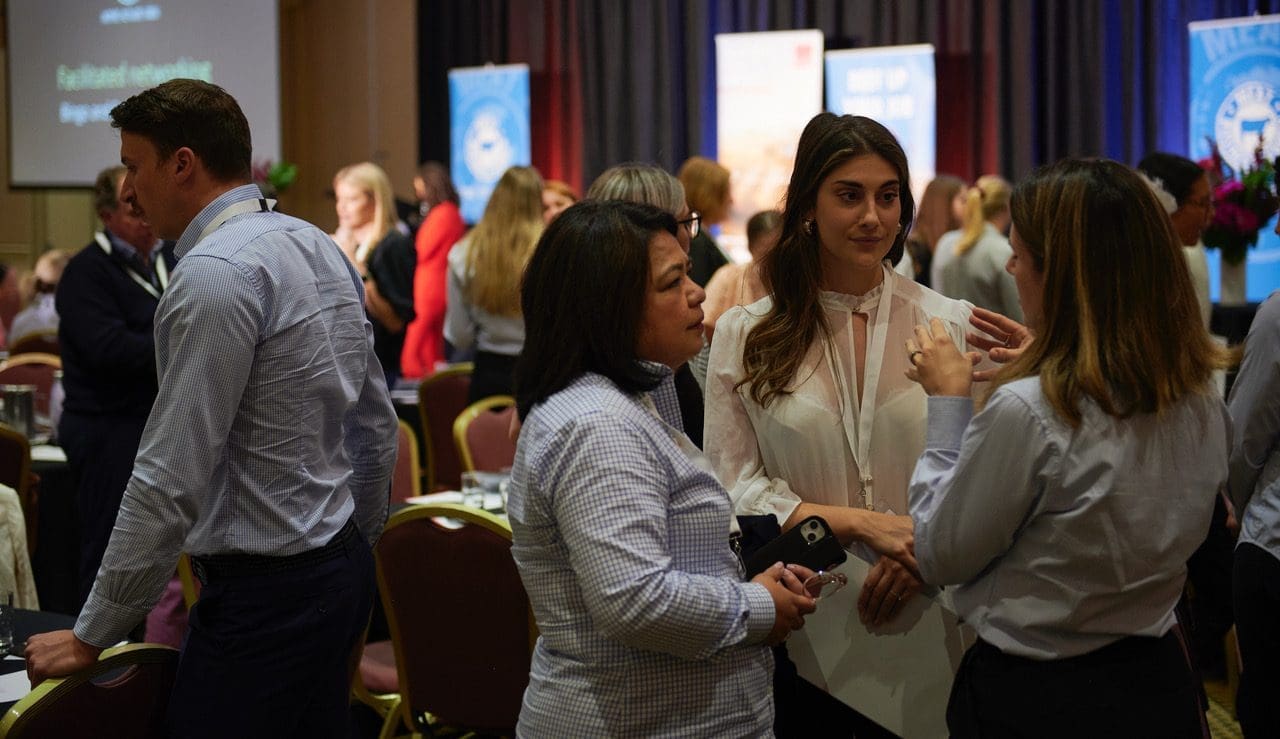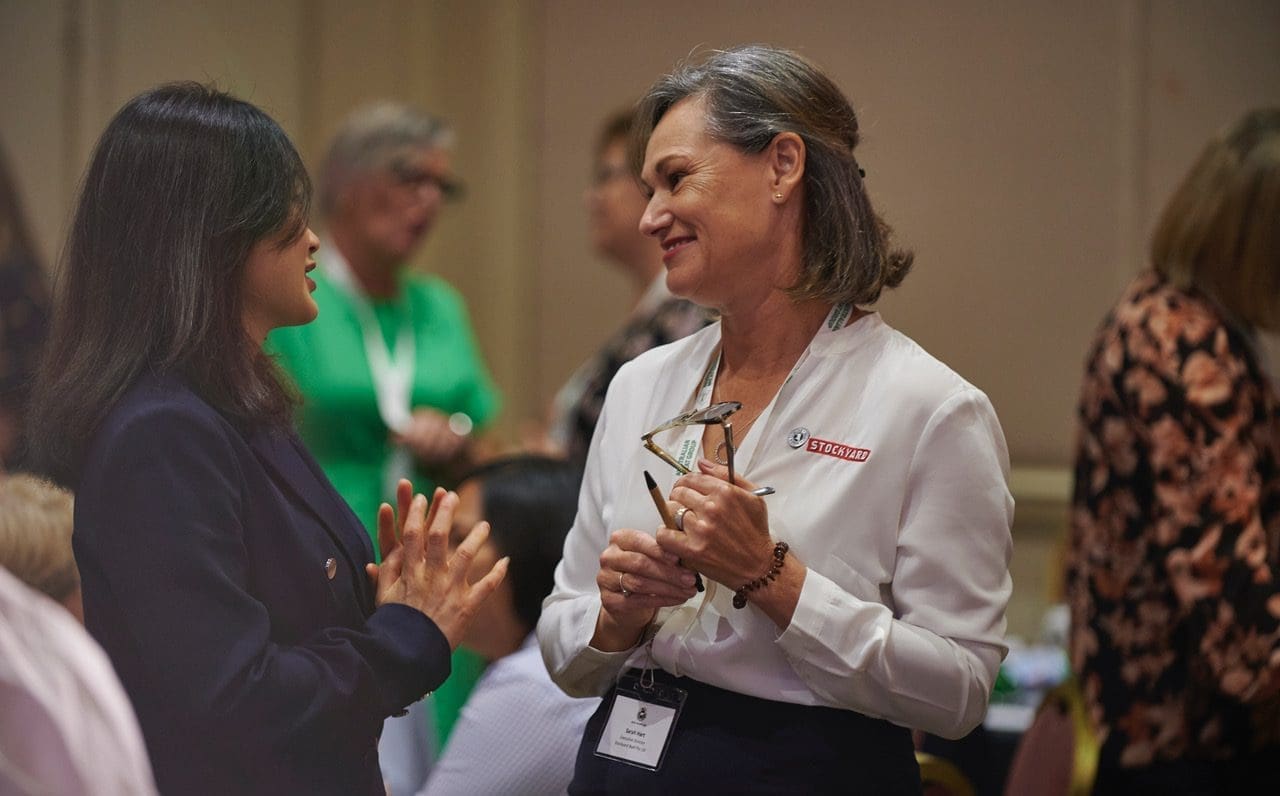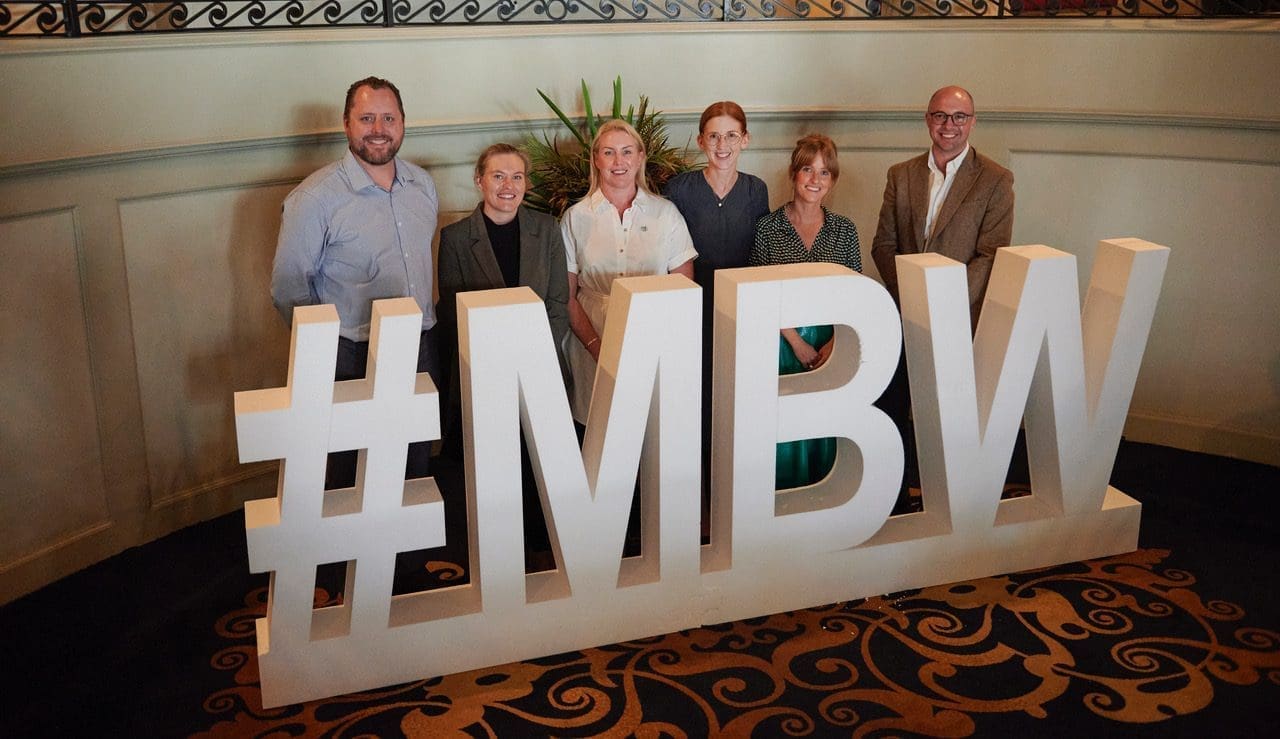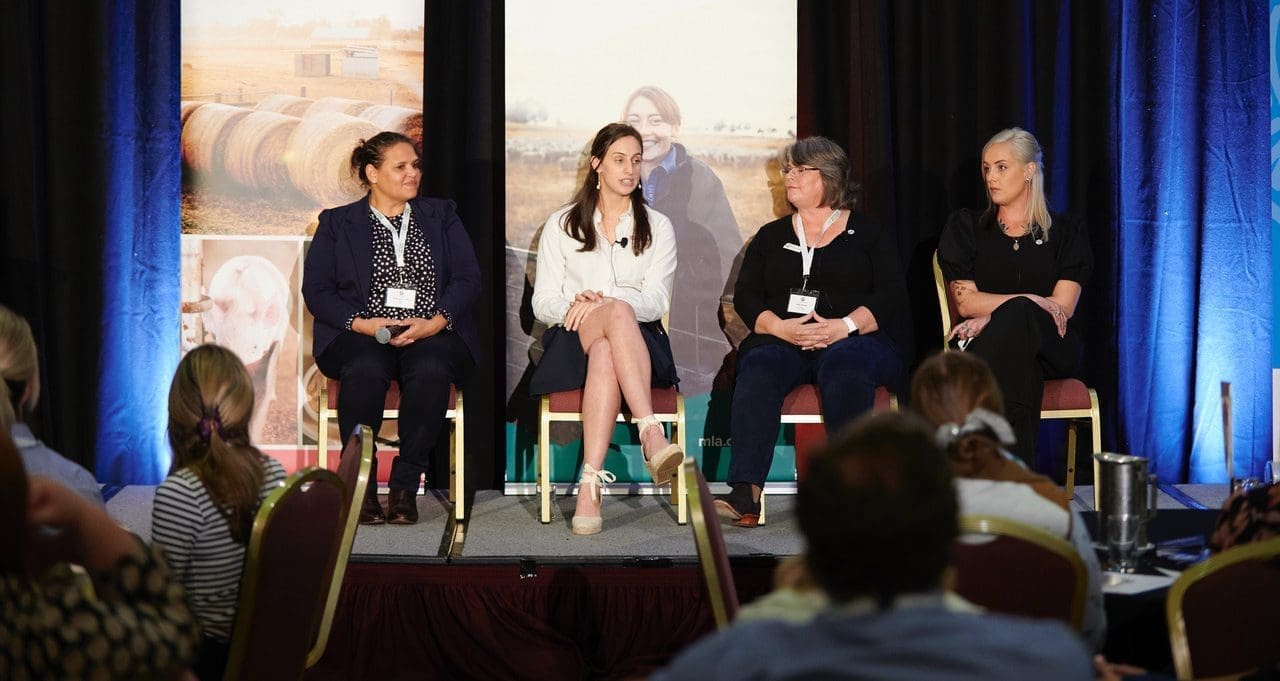PROFESSIONALS from across the Australian meat industry came together for the 2022 Meat Business Women Conference in Sydney on Wednesday.
Hosted by the Australian Meat Industry Council as the Australian territory partner for MBW, the conference was back after a three-year hiatus due to COVID, with virtual events having replaced the in-person networking events.

Temple Grandin address the MBW audience remotely
This year’s Meat Business Women’s Conference delegates heard remotely from famous animal behaviourist and welfare expert Dr Temple Grandin from Colorado State University; Australian Women in Agriculture president Natalie Sommerville, 2022 SA AgriFutures Rural Women’s Award Winner Robyn Verrall, Coles head of strategy and transformation Harriet Mellish, with a global update from MBW Founder and Global Chair Laura Ryan; along with other industry speakers and panellists.
Working as a female in a largely male-dominated industry, Dr Grandin told the audience that being a woman had been a bigger disability than her (well known) autism early in her career.
“I started my career in the early 1970s. At that time the only women working in Arizona feedyards were working as secretaries in the office,” she said.
“Autism was a non-issue for me at that time. It was being a woman that was an issue. Today, things are very different,” Dr Grandin said.
“Selling my work (sketches of low-stress stock handling yard designs, and writing about stock handling in local ag media) helped me get started, in what was then a male dominated industry.”
“But I did get kicked out of places – just because I was a woman,” she said.
“Where I got into trouble was not from the people out there working with the cattle, and not from the yard owners, but from middle management. Almost all of my trouble was with middle-management – I got along well with the big bosses and the employees working directly with the cattle.”
Asked how she addressed those issues, Dr Grandin said one of the strategies that helped her was to have more than one project on the go at the same time.
“If I hit a dead-end on one project, I could work on something else.”
Dr Grandin said a lot of people with autism who had become really successful had their own business. Elon Musk was a good example.
“For example I worked with metal fabricators on yard and crush designs that I knew, who were undiagnosed autistics. They had their own shops, and sometimes, that’s a better way to go.”
Asked about the most memorable moments in her career as an animal behaviourist, Dr Grandin said some of her happiest times happened when a project ‘just really worked.’
Dr Grandin noted that at many US universities, animal science under-graduates were now 80 percent women, many of whom were completing pre-vet studies.
Meat Business Women Australia chair Stacey Mckenna said her committee worked hard to assist in delivering the Meat Business Women events and it was fantastic to see it all come together.
“We had 200 attendees this year from across the supply chain at our sold-out event and the room was just buzzing with excitement.
“The theme for this year’s conference was “Reconnect” and we certainly achieved that,” Ms McKenna said.
“Events like this are just so important to promote and celebrate the women within the meat industry, but also to build strong networks and develop the image, culture and landscape of the meat industry to make it more attractive to female talent. As we know, a diverse industry is a healthy and prosperous industry.
“All of our speakers were excellent. Dr Temple Grandin joined us via video link live from Colorado and conducted a fantastic Q&A where she really engaged with the audience on a personal level. The interview and Q&A really highlighted her expertise as an industry leader as she shared her insights and candid thoughts on being a woman in a male dominated industry.
“The Meat Business Women committee and the Australian Meat Industry Council are looking forward to hosting more Meat Business Women events next year,” Ms Mckenna said.
Captions to come….
